Critical Corner: Parade by Rachel Cusk
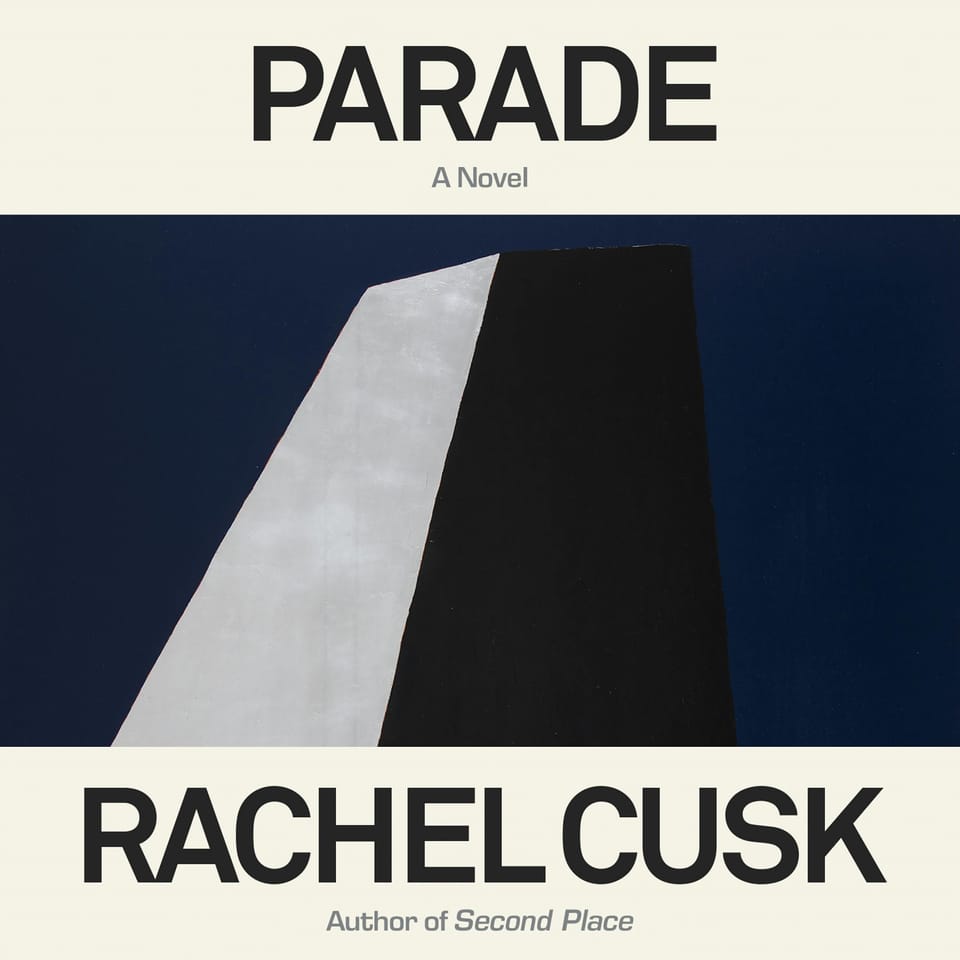
I’ve always found a response to Rachel Cusk to be a fascinating litmus test of a person. People who love Cusk, really love Cusk, and I’m delighted to chat to those people about her intricate, high-flying prose and her refusal to adhere to traditional narrative structures or pacing. People who hate Cusk, really hate Cusk, and I’m equally delighted to talk to them about her distancing methods and her complete disinterest in an audience liking literally any characters in her books. People who have no opinion? Read Outline, and I’ll be delighted to talk with you about it at length!
Parade, Cusk’s latest novel, is one that will likely entrench each of these camps deeper. It is set in the art world – inward-facing and insular by both nature and design – and follows several characters all called “G” through existential crises with varying levels of severity. It is by far her most inaccessible book, and hard to recommend all but the most devoted Cuskheads (a term she would surely not approve of). It might even have the strange effect of casting disparaging light on the rest of Cusk’s work, as though suddenly the undeniable privilege of Outline’s protagonist might be cast in sharp relief.
It is a strange thing to consider, when the writing is this good but the subject is so alienating. If you dig deep beneath the prose, there is some fascinating thinking around how the conventions genre and gender limit us, and therefore our engagement with the world.
It’s telling that the best parts of Parade are those where the artists break out of their own navel-gazing and engage with the world; one is a story where a woman is physically assaulted by another woman, in the other a filmmaker reckons with his craft and his legacy. The former story ends up with the protagonist framing her assault as both an act of interpersonal terrorism and an art project. It leads to intellectual gut-punches like:
“Yet, the reality of violence, painful though it was, seemed to offer a correction to the reality that obeys the laws of gravity. What it offered was a bloody kind of truth. You, I called her, the woman who had hit me – called her in my mind, the hundreds of times I thought of her each day. She had replaced my image of myself, the image had left behind me in the gilded mirror of the lady’s apartment.”
Immediate, troubling, provoking. Cusk at her best. Unfortunately, too often, Cusk gets caught up in her ideas, and a sickly aura descends over the book. Every character that Cusk pays attention to, gives light to, gives depth to, is an artist. Everybody else is nameless. A representation of a human being rather than an actual human being. Sadly, too often the reader is included amongst these nameless, aimless creatures.
“Aren’t these people and their ideas so interesting?”, Cusk says (with prettier words than that).
“Nah, I’m good. But I’ll still read the next one,” I say in response.
Parade is available from bookstores now.
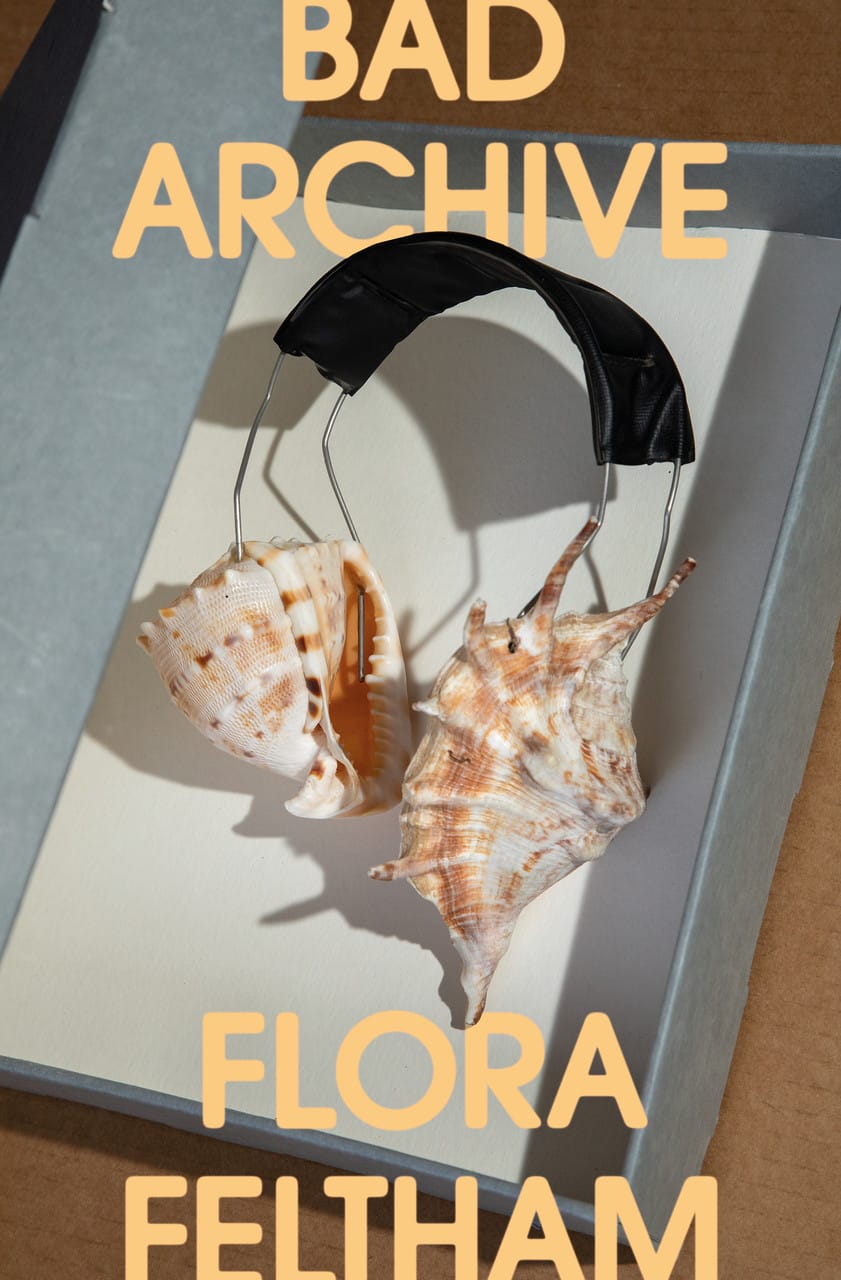
Other Things I’ve Consumed
- Firstly, apologies for the dearth of newsletter over July! I’ve been sick and then working on a project which has taken up the bulk of my writing time (and consequently prevented me from engaging with anything that might be critiqued).
- Bad Archive by Flora Feltham is the best book of essays I’ve read, from anywhere, all year. Highly recommended (and my review will be published somewhere else, sometime in the future). Also easily the best cover of the year?
- I have been playing Legend of Heroes: Trails through Daybreak at length, which is another reason for my brief hiatus. It is the best written game of the year, with a shockingly great localisation.
Things I’ve Read
- While Bad Archive is the best book of essays I’ve read, the best singular essay I’ve read this year is Mary Gaitskill (arguably the best living essayist) writing on a therapy technique she calls “Pneuma” for Granta Magazine. I won’t say anything more, but it’s worth carving out the duration of two coffees to get into it.
- I’ve read this essay on my favourite New Zealand musician Lontalius (written by one of my favourite feature writers, Henry Oliver) several times in print and now it is available online!
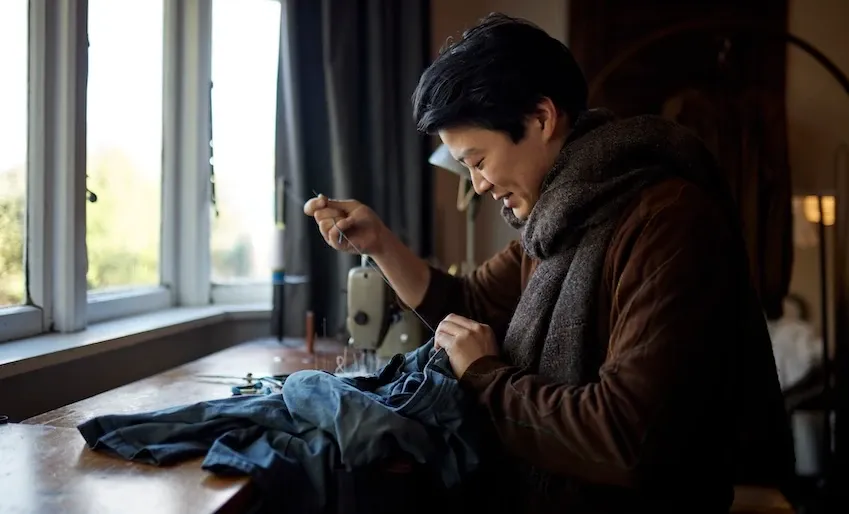
Self-Promo
- Since my last post, there have been two more pieces in the Art Work series – with Dr. Areta Wikinson and Steven Junil Park respectively!
- I have two pieces in this month’s Metro Magazine – one on Narrative Muse, the company that received $500K from the Ministry of Culture and Heritage, creating quite a stir in the lit scene, and an expanded review of romesh dissanayake’s book when I open the shop. Buy it wherever Metro Magazines are sold.
Writing and reporting takes time, and if you want to support the amount of time it takes (and ensure that the scant amount of meaningful coverage of local art can continue), please considering supporting Dramatic Pause with a paid subscription ($8 p/m, $60 p/a) and if you can't afford a paid subscription, please share the work with your networks!
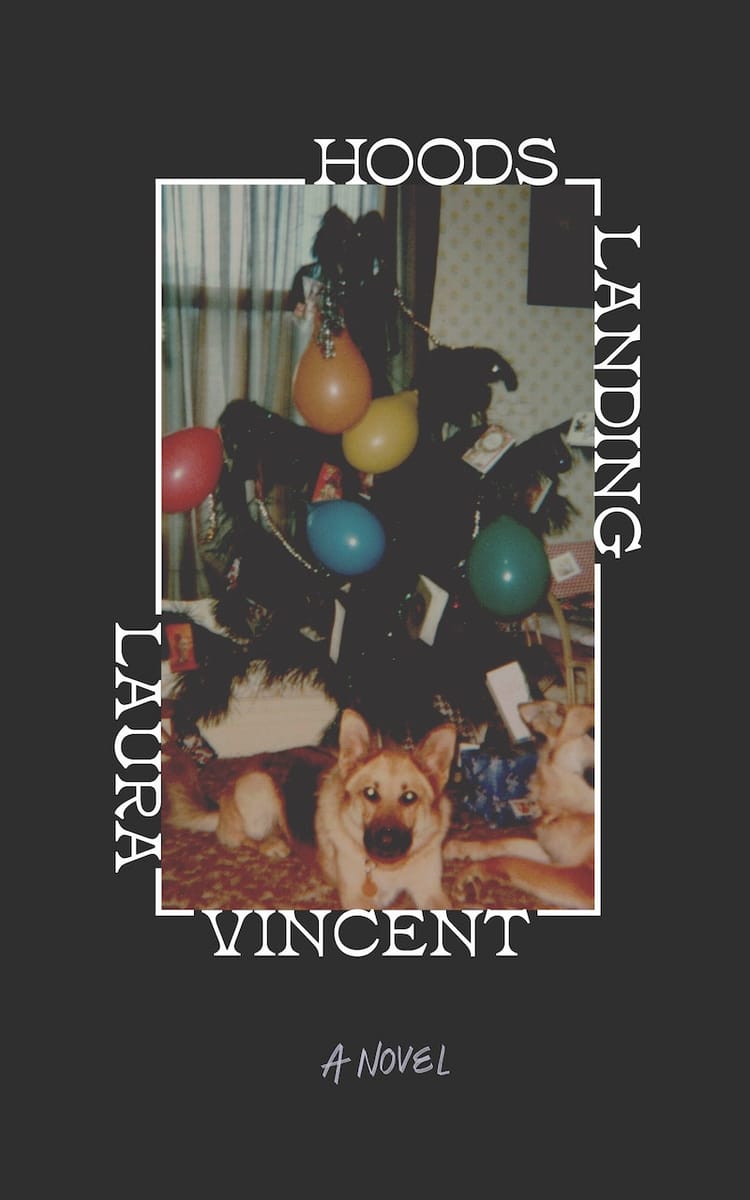
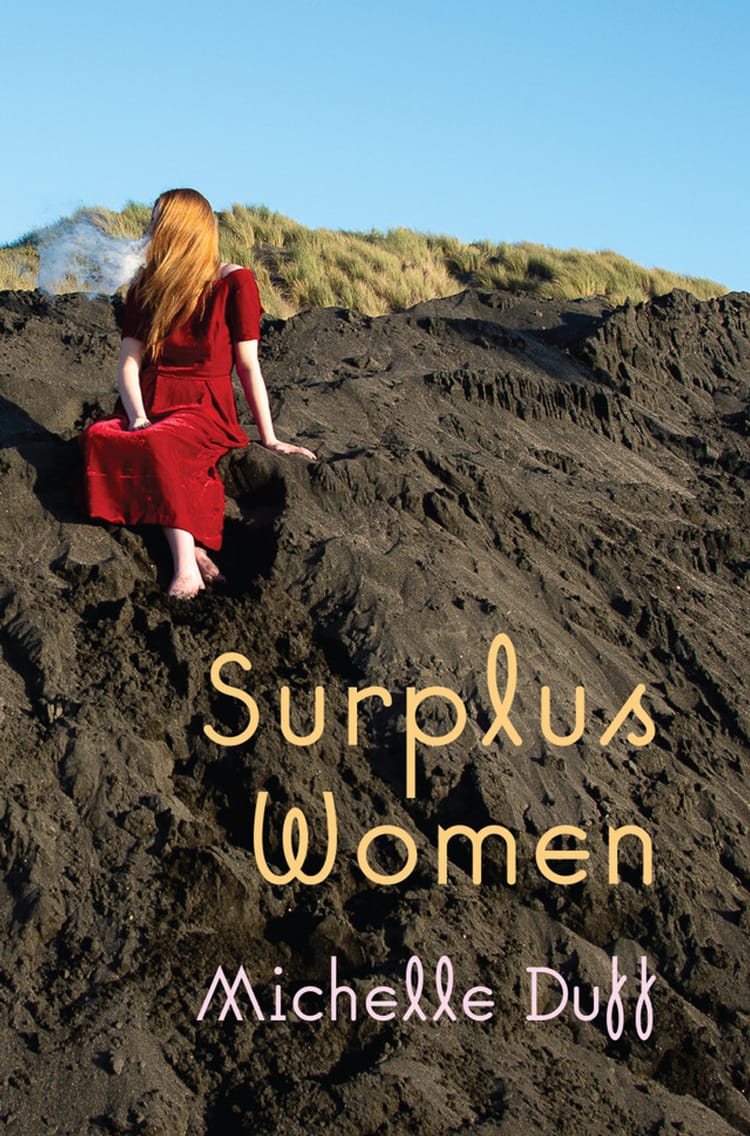
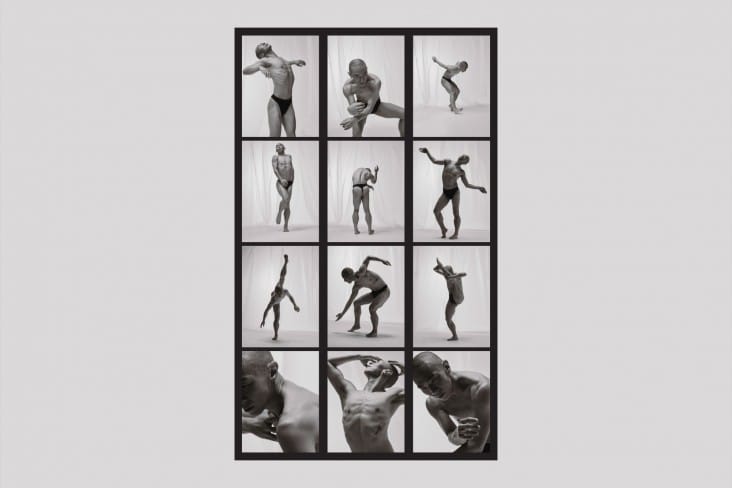
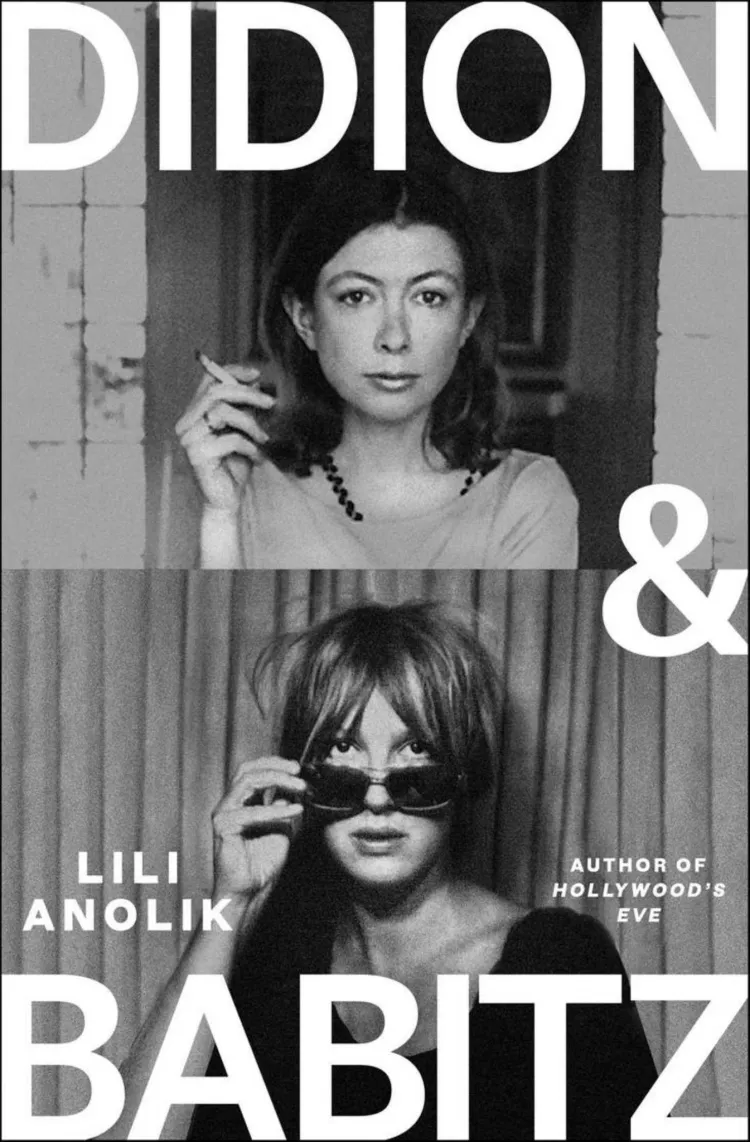
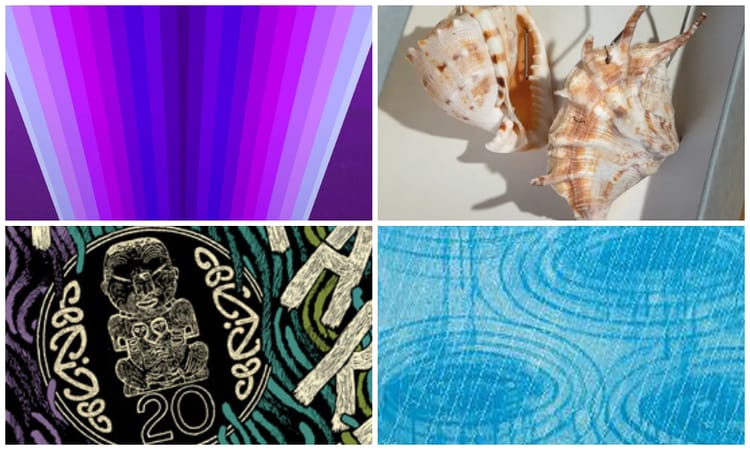
Member discussion